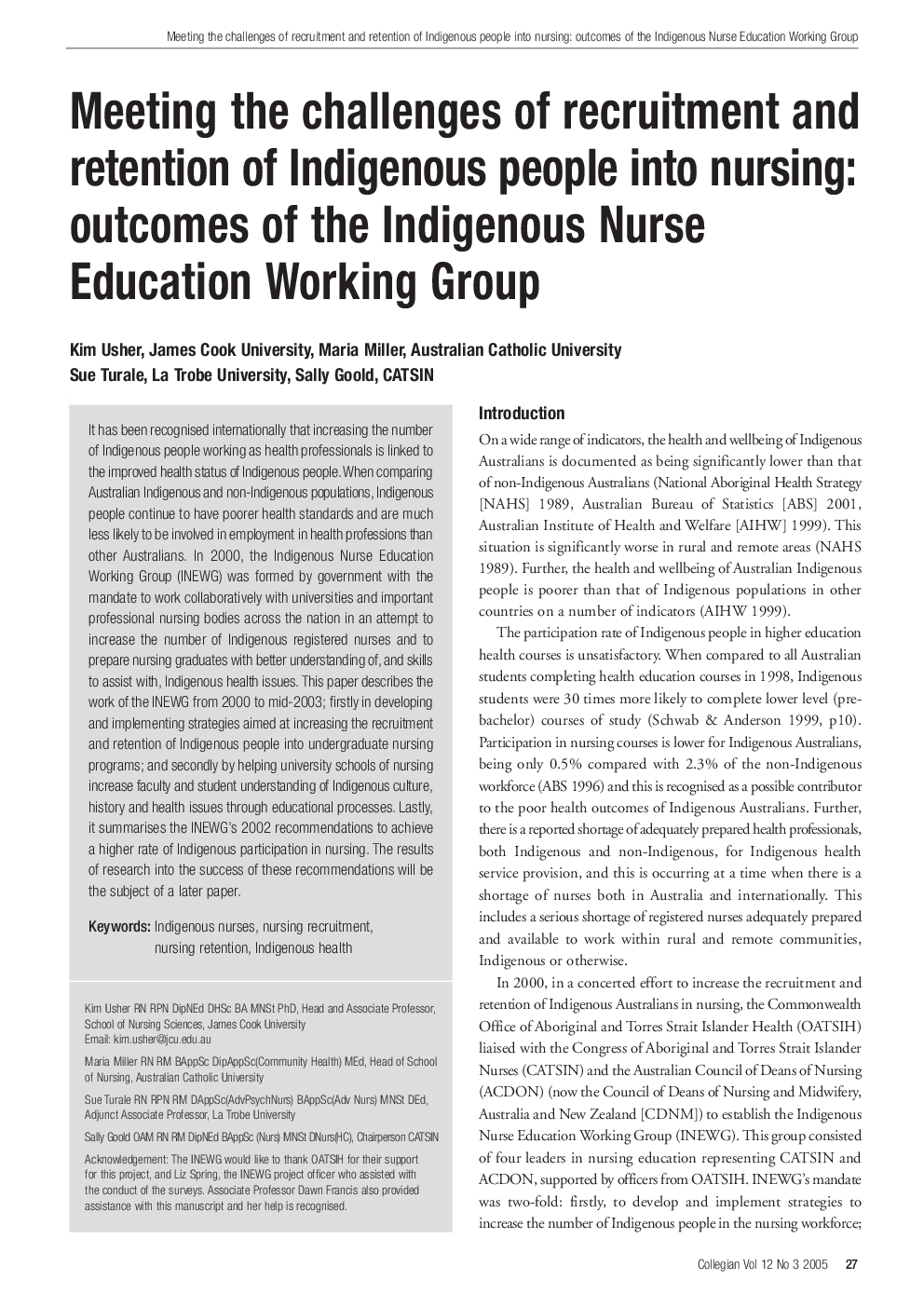| Article ID | Journal | Published Year | Pages | File Type |
|---|---|---|---|---|
| 9056264 | Collegian | 2005 | 5 Pages |
Abstract
It has been recognised internationally that increasing the number of Indigenous people working as health professionals is linked to the improved health status of Indigenous people. When comparing Australian Indigenous and non-Indigenous populations, Indigenous people continue to have poorer health standards and are much less likely to be involved in employment in health professions than other Australians. In 2000, the Indigenous Nurse Education Working Group (INEWG) was formed by government with the mandate to work collaboratively with universities and important professional nursing bodies across the nation in an attempt to increase the number of Indigenous registered nurses and to prepare nursing graduates with better understanding of, and skills to assist with, Indigenous health issues. This paper describes the work of the INEWG from 2000 to mid-2003; firstly in developing and implementing strategies aimed at increasing the recruitment and retention of Indigenous people into undergraduate nursing programs; and secondly by helping university schools of nursing increase faculty and student understanding of Indigenous culture, history and health issues through educational processes. Lastly, it summarises the INEWG's 2002 recommendations to achieve a higher rate of Indigenous participation in nursing. The results of research into the success of these recommendations will be the subject of a later paper.
Keywords
Related Topics
Health Sciences
Medicine and Dentistry
Public Health and Health Policy
Authors
Kim (Head and Associate Professor), Maria (Head of School of Nursing), Sue (Adjunct Associate Professor), Sally (Chairperson),
